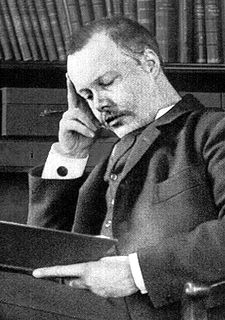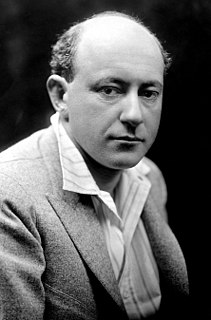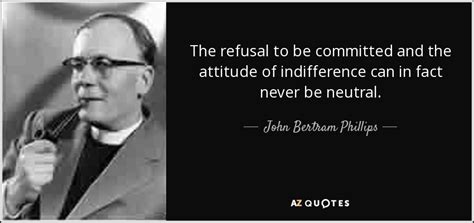A Quote by Houston Stewart Chamberlain
In the eyes of God all men, indeed all creatures, may be equal: but the divine law of the individual is to maintain and to defend his individuality.
Quote Topics
Related Quotes
In most ages many countries have had part of their inhabitants in a state of slavery; yet it may be doubted whether slavery can ever be supposed the natural condition of man. It is impossible not to conceive that men in their original state were equal; and very difficult to imagine how one would be subjected to another but by violent compulsion. An individual may, indeed, forfeit his liberty by a crime; but he cannot by that crime forfeit the liberty of his children.
The honor that we pay to the Son of God, as well as that which we render to God the Father, consists of an upright course of life. This is plainly taught us by the passage, "You that boast of the Law, through breaking the Law dishonor God."...For if he who transgresses the law dishonors God by his transgression,...it is evident that he who keeps the law honors God. So the worshipper of God is he whose life is regulated by the principles and teachings of the Divine Word
Man has made 32 million laws since THE COMMANDMENTS were handed down to Moses on Mount Sinai more than three thousand years ago, but he has never improved on God's law. THE TEN COMMANDMENTS are the principles by which man may live with God and man may live with man. They are the expressions of the mind of God for His creatures. They are the charter and guide of human liberty, for there can be no liberty without the law.
If you find it difficult to love the human in someone, then love the divine in him. The divine in him is God. God exists in that person just as God exists in you. To love God is extremely easy because God is divine and perfect. Each time you look at an individual, if you can consciously become aware of God's existence in him, then you will not be disturbed by his or her imperfections or limitations.
Because the divine goodness could not be adequately represented by one creature alone, God produced many and diverse creatures, that what was wanting in one in the representation of the divine goodness might be supplied by another. For goodness, which in God is simple and uniform, in creatures is manifold and divided. Thus the whole universe together participates in the divine goodness more perfectly and represents it better than any single creature.
And the law of God is written in every heart, and it is there that he manifests himself; And in infinite love, according to our necessities, states, conditions. And as we are all various and different from one another, more or less, so the law by the immediate operation of divine grace in the soul, is suited to every individual according to his condition.
To be risen with Christ means not only that one has a choice and that one may live by a higher law - the law of grace and love - but that one must do so. The first obligation of the Christian is to maintain their freedom from all superstitions, all blind taboos and religious formalities, indeed from all empty forms of legalism.
To admit the existence of a need in God is to admit incompleteness in the divine Being. Need is a creature-word and cannot be spoken of the Creator. God has a voluntary relationg to everything He has made, but He has no Necessary relation to anything outside of Himself. His interest in His creatures arises from His sovereign good pleasure, not from any need those creatures can supply nor from any completeness they can dring to Him who is complete in himself.
Consciousness makes the individual careful to maintain his own existence; and if this were not so, there would be no surety for the preservation of the species. From all this it is clear that individuality is not a form of perfection, but rather a limitation; and so to be freed from it is not loss but gain.
Our "society" is not a community, but merely a collection of isolated family units. Desperately insecure, fearing his woman will leave him if she's exposed to other men or to anything remotely resembling life, the male seeks to isolate her from other men and from what little civilization there is, so he moves her out to the suburbs, a collection of self-absorbed couples and their kids. Isolation, further, enables him to try to maintain his pretense of being an individual by being a "rugged individualist", a loner, equating non-co-operation and solitariness with individuality.
God shows us in Himself, strange as it may seem, not only authoritative perfection, but even the perfection of obedience--an obedience to His own laws; and in the cumbrous movement of those unwieldiest of his creatures we are reminded, even in His divine essence, of that attribute of uprightness in the human creature "that sweareth to his own hurt and changeth not.



































